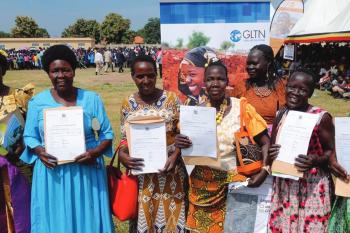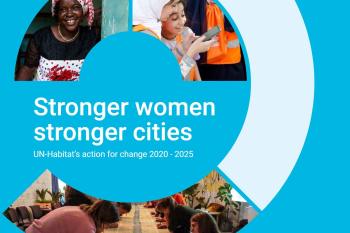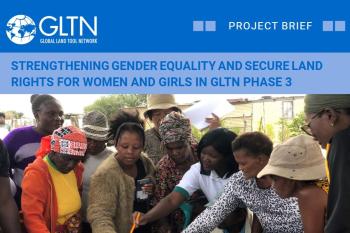
Read More
Gender Strategy for Land-at-Scale Uganda
Women’s Land Rights (WLRs) are fundamental human rights, foundational to gender equality and women’s dignity and instrumental in improving food security, effective climate action, poverty eradicati

Learning from emerging practices
Access to land and natural resources is essential to social and economic development, providing housing, food and livelihood security.
In eastern Democratic Republic of Congo, rural and indigenous populations exist in tenuous tenure security situations, and the reasons for conflicts over land are many and varied, ranging from natural resource exploitation to ethnic conflict to state weakness. Over two decades of armed conflict has caused massive displacement, severely impacting women and children many of whom are widows and orphans. However, long before these stressors, customary land practices had systematically discriminated against women, denying them control and security in the land that they work for their husbands and fathers.
This publication explores the challenges faced by women in their struggle to gain access and control to land despite government efforts.

Women’s Land Rights (WLRs) are fundamental human rights, foundational to gender equality and women’s dignity and instrumental in improving food security, effective climate action, poverty eradicati

This publication presents a summary of UN-Habitat’s gender equality impact over the past five years, in line with the Beijing reporting cycle.

GLTN’s institutional commitment to gender equality and secure land rights for women and girls has been at the core of its work since inception in 2006.